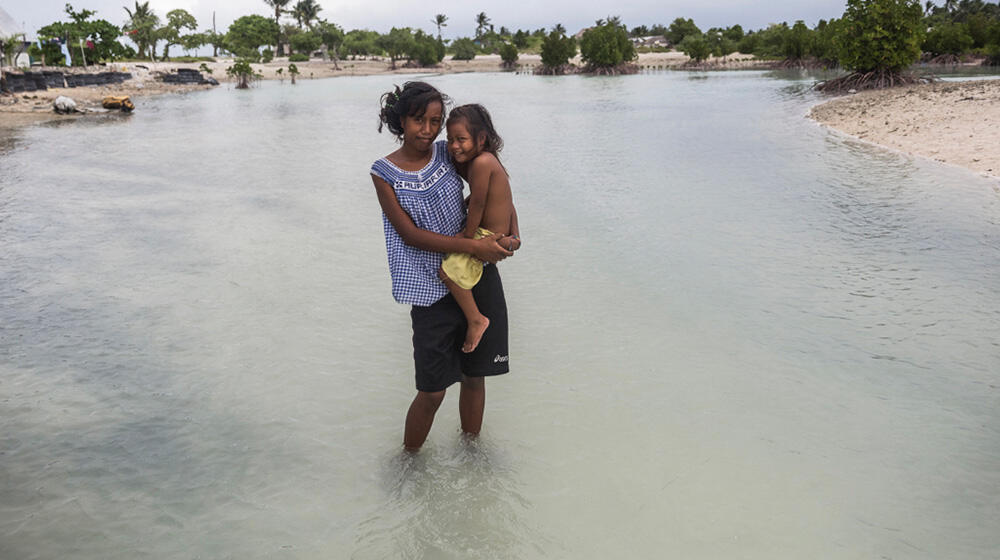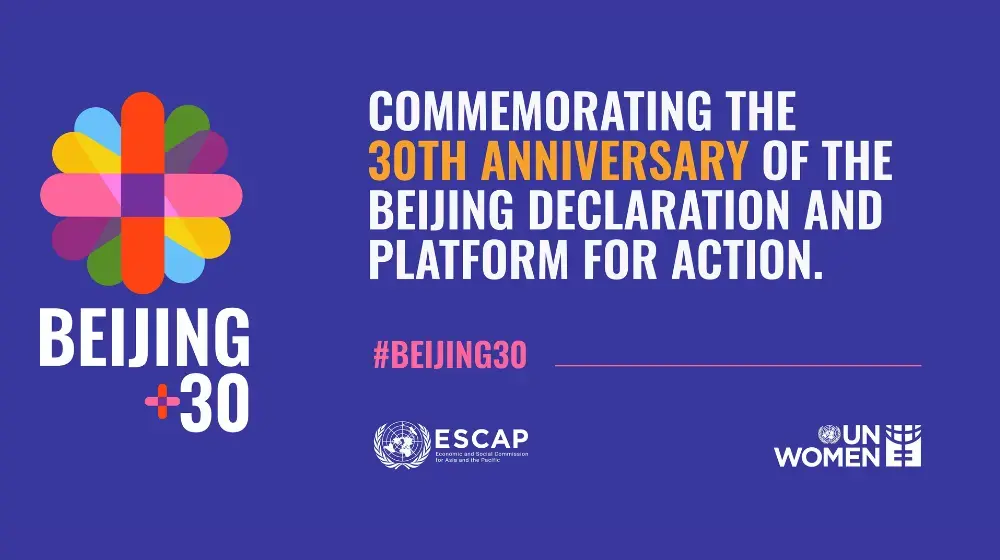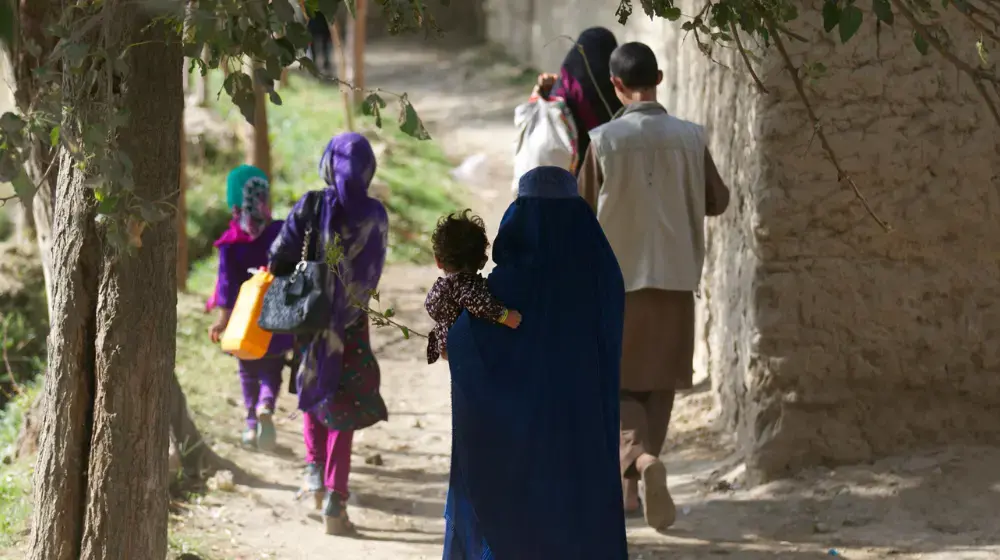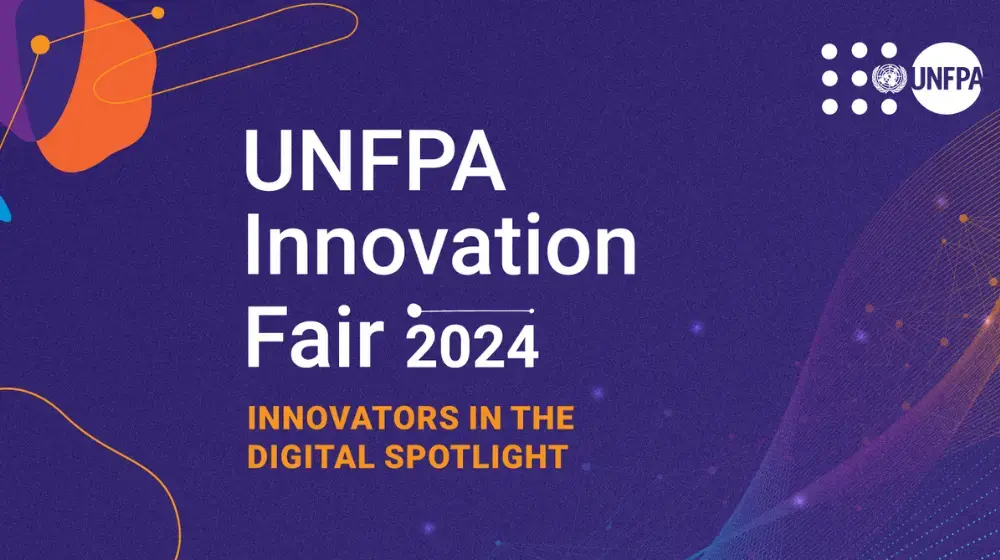UNFPA Regional Director for Asia and the Pacific, Björn Andersson, says more needs to be done to destigmatize menstrual health and hygiene to help communities prepare for climate disasters.
Menstruation is too often treated as a taboo topic and this stigma is pronounced in emergencies, where the challenges of managing menstruation are amplified. Asia and the Pacific is especially vulnerable to climate change, with droughts, floods and extreme storms that will continue to devastate critical infrastructure. In disaster responses across the region, menstrual health is under-resourced, with dire consequences for the health of women and girls.
The World Bank estimates that more than 500 million women and girls around the world lack access to menstrual supplies and adequate facilities for menstrual hygiene management, a number expected to increase as the climate crisis intensifies.
From the flooded fields of Pakistan to the cyclone ravaged islands of Vanuatu, women struggle to manage their menstruation safely, comfortably and with dignity. In emergency situations, the lack of access to basic menstrual supplies can lead to a range of health problems including urinary and reproductive tract infections.
One of UNFPA’s core missions is to uphold women's and girls' dignity and protect their sexual and reproductive health and rights in any crisis. We work with partners on the ground to deliver dignity kits before and after emergencies, to help women maintain their fundamental right to health. The kits are a vital connection point that brings women into a network, with information about menstrual health, rights and raises awareness about gender equality.
During my recent visit to Vanua Levu in Fiji, I met families who were displaced by the devastating Tropical Cyclones Yasa and Ana in December 2020 and they were still living in temporary tents. Mothers spoke about how grateful they are for the UNFPA-supported midwives who talked to their daughters about menstruation, how to manage it safely, and they provided much-needed supplies of sanitary pads along with other items as part of the dignity kits.
These cyclones in Fiji were yet another reminder of how extreme weather events damage water and health infrastructure, making it harder for women and girls to access clean water, sanitation facilities and basic social services.
In emergency response plans, too often menstruation is not taken into account, which leaves women and girls even more at risk of diseases and infections. Before disasters hit, plans need to be in place so that the supplies are distributed or accessible in a way that is sensitive to the needs of women and girls, while working on destigmatizing menstruation, addressing harmful social norms, and making sure that communities have accurate information about menstrual health.
Forward-thinking governments recognize that investing in menstrual health and hygiene is crucial for promoting good health, gender equality and ensuring that women and girls can participate fully in society. To do this, we must listen to the needs of women and girls whose voices are central to disaster planning, humanitarian action and resource allocation. For this reason, to help prepare for disasters, UNFPA customizes dignity kits through consultations, including with persons with disabilities. We also ensure that solutions are community-led and that privacy is protected when distributing menstrual supplies.
Climate-related disasters are increasing in scale and frequency. UNFPA is committed to continue working with governments, partners and communities to strengthen health and social service infrastructure to face the impacts of the climate crisis on sexual and reproductive health and rights, including menstrual health. With a resilient and well-equipped network of health facilities, schools and water and sanitation infrastructure, communities will have the resources to cope with what is coming, as the climate crisis intensifies.
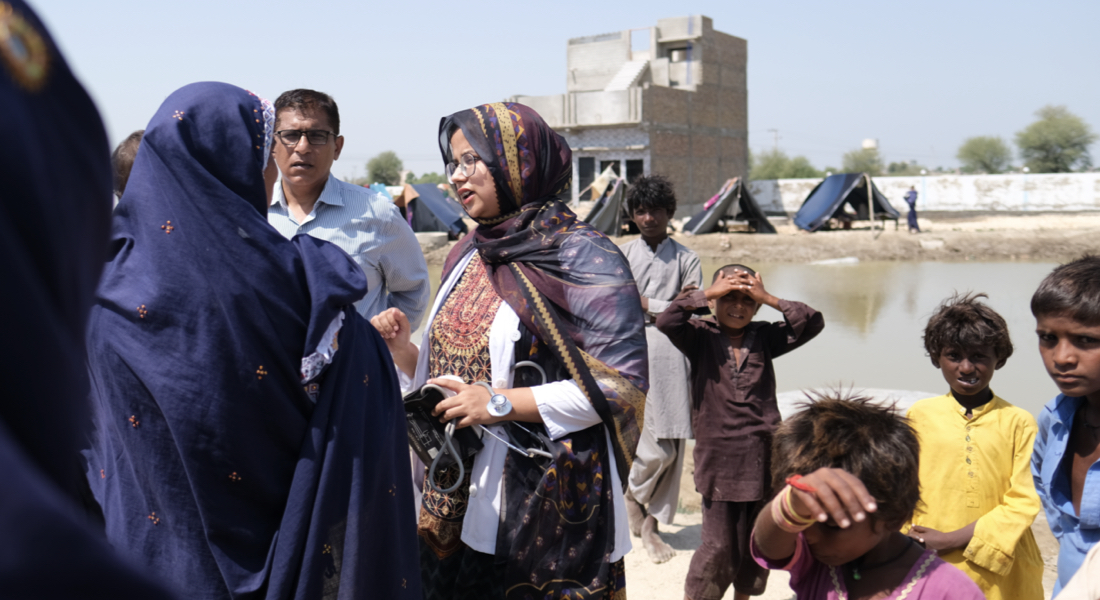
Learn More
Menstrual Health Waste Management: Understanding the Menstruator
Menstrual Waste Management Series: Emerging Solutions
Climate change and health supply chains
Menstrual hygiene management (MHM) in emergencies toolkit

